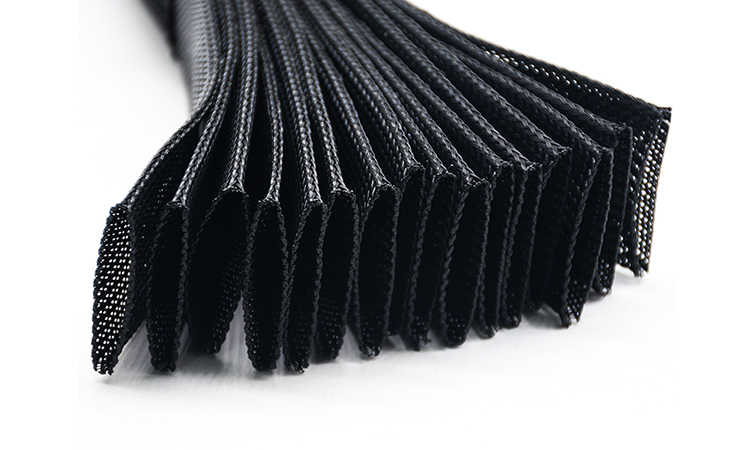In an era where environmental concerns and sustainable practices take center stage, industries across the globe are being called upon to play their part in mitigating climate change and reducing their environmental footprint.
One such sector that has been increasingly focusing on energy saving and emission reduction is the braided sleeve industry.
This vital segment of manufacturing, which serves as a critical component in various sectors like automotive, aerospace, and medical devices, has recognized the importance of adopting sustainable practices to ensure a greener future.

Understanding cable Braided sleeves:
Braided casings are versatile components that find application in an array of industries due to their durability, strength, and flexibility.
These casings are typically constructed by interlacing multiple fibers, such as metals, polymers, or composites, in a specific pattern to create a strong and protective outer layer.
This layer provides structural integrity, protects internal components, and offers resistance to external forces, making them indispensable in industries where safety and reliability are paramount.
Energy Consumption and Emissions:
The manufacturing process of expandable wire sleeve involves multiple stages, each contributing to energy consumption and emissions.
From material extraction to processing, weaving, and finishing, energy-intensive steps are integral to creating a high-quality product.
The energy required for these processes primarily comes from fossil fuels, which release greenhouse gases and contribute to global warming.
Moreover, emissions associated with the braided sleeves industry are not limited to just carbon dioxide (CO2).
Other pollutants, including volatile organic compounds (VOCs) and particulate matter, are often released during the manufacturing process, posing a threat to air quality and human health.
Importance of Energy Saving and Emission Reduction:
Environmental Impact: The braided casing industry's adoption of energy-efficient practices and emission reduction strategies can significantly lessen its impact on the environment.
By curbing emissions and conserving energy, the industry can contribute to lower carbon footprints and cleaner air quality, ultimately supporting global efforts to combat climate change.
Regulatory Compliance: Many countries have established stringent regulations and standards aimed at controlling industrial emissions and promoting energy efficiency.
Companies in the braided sleeving industry must adhere to these regulations to avoid penalties and maintain their social and legal responsibilities.
Economic Benefits: Embracing energy-saving measures can lead to substantial cost savings for manufacturers.
Efficiency improvements often result in reduced operational expenses, including energy bills.
Additionally, adopting sustainable practices can enhance a company's reputation, potentially attracting environmentally conscious customers and investors.
Innovation and Competitiveness: Pursuing energy-saving technologies and emission reduction strategies can drive innovation within the braided sleeve industry.
This can lead to the development of new materials, improved manufacturing processes, and enhanced product performance, thus increasing the industry's competitiveness in the market.
Strategies for Energy Saving and Emission Reduction:
Efficient Manufacturing Processes: Investing in advanced manufacturing technologies and processes can help optimize energy consumption.
Automation, precision control, and lean production methods can minimize waste and improve energy efficiency.
Renewable Energy Sources: Transitioning to renewable energy sources, such as solar or wind power, for manufacturing operations can significantly reduce greenhouse gas emissions associated with energy consumption.
Material Selection: Opting for eco-friendly and recyclable materials can lower the environmental impact of braided casings.
Additionally, selecting materials that require less energy during production can contribute to energy savings.
Waste Management: Implementing effective waste management practices, such as recycling and reusing materials, can reduce the amount of waste generated during the manufacturing process.
Employee Training: Educating the workforce about the importance of energy saving and emission reduction can foster a culture of sustainability within the company.
Employees can contribute innovative ideas and suggestions to further improve the company's environmental performance.
expandable braided cable sleeve industry holds a pivotal role in various sectors, and its commitment to energy saving and emission reduction is crucial in building a sustainable future.
By embracing energy-efficient practices, adopting renewable energy sources, and innovating in materials and manufacturing processes, the industry can significantly reduce its environmental impact while enhancing its competitiveness.


